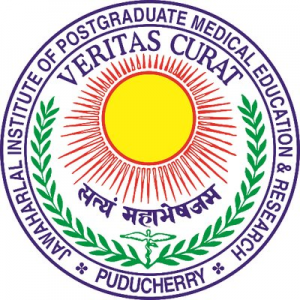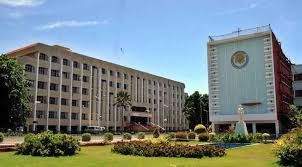Description:
Located in the Union Territory of Pondicherry, JIPMER (previously Ecole Médecine in erstwhile French India) is an Institute of National Importance, running autonomously under the Ministry of Health & Family Welfare, Government of India. JIPMER ranks among the top medical colleges in India, and is one of the largest super-specialty tertiary care hospitals in South India.
The Department of Psychiatry at JIPMER, has an out-patient and inpatient psychiatric acute care facility. The department has a patient base from Pondicherry and the neighboring state of Tamil Nadu.
| Investigator | Profession | Contact Information | Publications | |
|---|---|---|---|---|
| Dr. Vikas Menon | Additional Professor, Dept of Psychiatry JIPMER, Pondicherry | drvmenon@gmail.com | Google Scholar |  |
| Dr. Ravi Phillip Rajkumar | Additional Professor, Dept of Psychiatry, JIPMER, Pondicherry | ravi.psych@gmail.com | Google Scholar |  |
Research
Previous/ Ongoing Research Collaborations
c-VEDA (Consortium on Vulnerability to Externalizing Disorders & Addictions)
- An ICMR - MRC grant and its main papers
- Comprises of >14.000 participants aged 0-25 years who have been genotyped
- Participants include those with high risk for substance misuse and population-based individuals from different social and environmental (rural and urban) backgrounds.
Collaborating Sites:
- NIMHANS Bangalore,
- PGIMER, Chandigarh;
- RIMH, Tezpur,
- Mysore
ADBS (Accelerator Program for Discovery in Brain Disorders using Stem Cells
- Funded by Department of Biotechnology, Government of India
- Study of multiplex families with severe mental illnesses
- Whole exome sequencing for 300 multiplex-affected families and population controls
Publications
Wray et al. (2018) in Nature Genetics: Genome-wide association analyses identify 44 risk variants and refine the genetic architecture of major depression. https://www.nature.com/articles/s41588-018-0090-3
Howard et al. (2019) in Nature Neuroscience: Genome-wide meta-analysis of depression identifies 102 independent variants and highlights the importance of the prefrontal brain regions. https://www.nature.com/articles/s41593-018-0326-7



